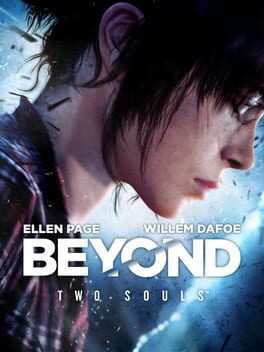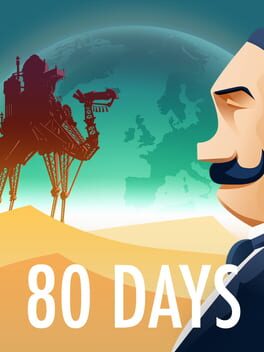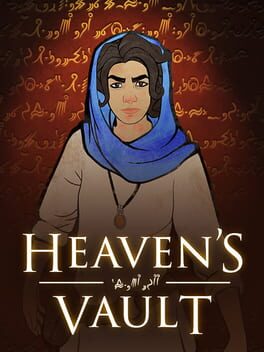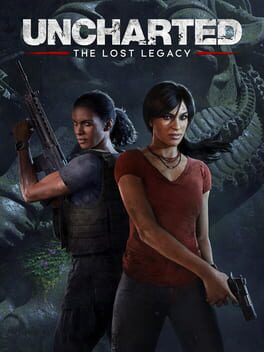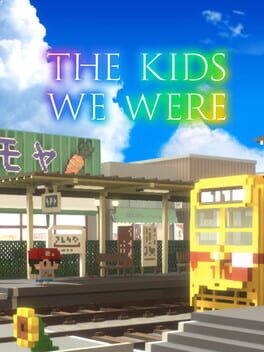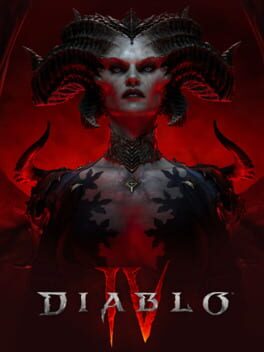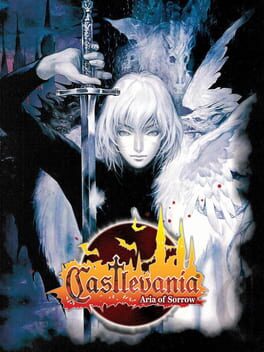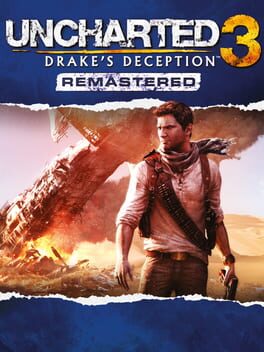guimachiavelli
21 reviews liked by guimachiavelli
Beyond: Two Souls
2013
El inevitable destino de una decisión artística equivocada, llevada a su extremo más ridículo. Donde Heavy Rain se presentaba como una propuesta de género con toques interactivos (que acababa disparándose su propio pie de pura incompetencia) Beyond se viste desde el principio como una Obra Seria que quiere hablar de Temas Serios ¿Qué Temas Serios? Elige ¡Los tenemos todos!
Bajo la montaña de chistes fáciles y derribos a su persona que David Cage (merecidamente) recibe, el señor y su equipo poseen una sensibilidad pulpera que tengo que admitir que me atrae. Heavy Rain supo mostrar, aunque fuera a ratos, ese talento del señor de Gruttola para recoger un género casposo y pasarlo por un par de pinceladas estilísticas. Un Night Shaymalan de mercadillo, podríamos decir. Pero ese potencial nunca se verá cumplido porque, incluso en sus mejores momentos (Fahrenheit, Omikron, una escena específica en Beyond) le puede el complejo y se ve obligado a disfrazar de oro lo que no pasa de pirita.
Aunque se trata de un estilo de juego denostado, el modelo de la "cinemática interactiva" ha dado muchas cosas buenas a lo largo del tiempo (pienso en Until Dawn como caso reciente y, mucho más atrás, me vienen a la cabeza los juegos de Tex Murphy y el grandioso Phantasmagoria 2) y su condición de género acomplejado es más culpa de quienes lo utilizan que del modelo en sí. Juegos como Beyond, con toda su pretensión de contar una historia madura repleta de tópicos de sensibilidad intelectualoide (la pobreza, los conflictos militares africanos, la marginación de los nativos americanos) acaba haciendo más mal que bien.
2013 fue una mierda de año entre esto, Last of Us y Bioshock Infinite. Vaya manera más patética de cerrar el ciclo de consolas de entonces y vaya presagio siniestro del que vendría después.
------------------------
The inevitable fate of a wrong-headed artistic path, taken to its horrible extreme. Whereas Heavy Rain presented itself as genre fare with some interactive elements (that crumbles out of sheer incompetence) Beyond: Two Souls wants to be immediately seen as a Serious Work that wants to talk about Serious Issue. What Serious Issues? Take your pick, we've got them all!
Underneath the mountain of easy jokes and dunks that David Cage (deservedly) receives, the man and his team possess a pulp sensibility that appeals to me at times. Heavy Rain was able to showcase, albeit briefly, Mr. Gruttola's talent for picking up a well-trod genre and elevate it with his particular touch. A second banana Night Shaymalan, we could say. But that potential will never be fulfilled because, even in his best moments (Fahrenheit, Omikron, a specific scene in Beyond) he is overcome by an inferiority complex and tries to reach highs that will never be reached.
Although this form of gameplay is generally mocked, the "interactive cutscene" model has made plenty of good things over the years (I'm thinking Until Dawn as a recent example, and the Tex Murphy games and Phantasmagoria 2 as earlier ones). The fact that it's so condescended today is more the fault of its participants than about the model itself. Games like Beyond, with its dedication towards telling a mature story with plenty of high-minded liberal topics (poverty, the Sudanese military conflict, the marginalization of Native Americans) ends up doing more harm than good.
Man, between this, The Last of Us and Bioshock: Infinite, 2013 was a really shitty year. What a pathetic way to cap on a whole generation of consoles, and what a sinister omen for what the next one would be about
Bajo la montaña de chistes fáciles y derribos a su persona que David Cage (merecidamente) recibe, el señor y su equipo poseen una sensibilidad pulpera que tengo que admitir que me atrae. Heavy Rain supo mostrar, aunque fuera a ratos, ese talento del señor de Gruttola para recoger un género casposo y pasarlo por un par de pinceladas estilísticas. Un Night Shaymalan de mercadillo, podríamos decir. Pero ese potencial nunca se verá cumplido porque, incluso en sus mejores momentos (Fahrenheit, Omikron, una escena específica en Beyond) le puede el complejo y se ve obligado a disfrazar de oro lo que no pasa de pirita.
Aunque se trata de un estilo de juego denostado, el modelo de la "cinemática interactiva" ha dado muchas cosas buenas a lo largo del tiempo (pienso en Until Dawn como caso reciente y, mucho más atrás, me vienen a la cabeza los juegos de Tex Murphy y el grandioso Phantasmagoria 2) y su condición de género acomplejado es más culpa de quienes lo utilizan que del modelo en sí. Juegos como Beyond, con toda su pretensión de contar una historia madura repleta de tópicos de sensibilidad intelectualoide (la pobreza, los conflictos militares africanos, la marginación de los nativos americanos) acaba haciendo más mal que bien.
2013 fue una mierda de año entre esto, Last of Us y Bioshock Infinite. Vaya manera más patética de cerrar el ciclo de consolas de entonces y vaya presagio siniestro del que vendría después.
------------------------
The inevitable fate of a wrong-headed artistic path, taken to its horrible extreme. Whereas Heavy Rain presented itself as genre fare with some interactive elements (that crumbles out of sheer incompetence) Beyond: Two Souls wants to be immediately seen as a Serious Work that wants to talk about Serious Issue. What Serious Issues? Take your pick, we've got them all!
Underneath the mountain of easy jokes and dunks that David Cage (deservedly) receives, the man and his team possess a pulp sensibility that appeals to me at times. Heavy Rain was able to showcase, albeit briefly, Mr. Gruttola's talent for picking up a well-trod genre and elevate it with his particular touch. A second banana Night Shaymalan, we could say. But that potential will never be fulfilled because, even in his best moments (Fahrenheit, Omikron, a specific scene in Beyond) he is overcome by an inferiority complex and tries to reach highs that will never be reached.
Although this form of gameplay is generally mocked, the "interactive cutscene" model has made plenty of good things over the years (I'm thinking Until Dawn as a recent example, and the Tex Murphy games and Phantasmagoria 2 as earlier ones). The fact that it's so condescended today is more the fault of its participants than about the model itself. Games like Beyond, with its dedication towards telling a mature story with plenty of high-minded liberal topics (poverty, the Sudanese military conflict, the marginalization of Native Americans) ends up doing more harm than good.
Man, between this, The Last of Us and Bioshock: Infinite, 2013 was a really shitty year. What a pathetic way to cap on a whole generation of consoles, and what a sinister omen for what the next one would be about
Overboard!
2021
Qué juego tan sencillo con una ejecución tan brillante! Si algo demuestra sin lugar a dudas juegos como Overboard! es que, si tienes una buena idea, es mejor confinarla a un espacio controlado y dejar que reluzca por sus propios méritos.
Más que un ejemplo de genialidad o de brillantez creativa, Overboard! es un ejemplo claro de que la elegancia prima sobre la abundancia. Como simulador de asesinato en el que se nos invita a adoptar el papel de la más villana más villana del lugar, el juego explorar los recovecos del escenario en una clave que se siente a ratos humorística, a otros sorprendentemente seria, pero siempre manteniendo una liviandad sobre sí mismo. Cuando algo rebosa tanta confianza, es normal que luzca tan bien.
--------------------------
Such a simple game with such a brilliant execution. If there's one thing titles like Overboard! prove beyond a shadow of a doubt, it's that having a good idea is not enough if you don't confine it into a controlled space and let it shine by its own merits.
More than as an example of genius or creative brilliance, Overboard! is a clear example of elegance trumping abundance. As a murder simulator in which we're invited to take on the role of the most villainous villainess ever, the game explores the nooks and crannies of the setting in a way that feels at times humorous, at others quite serious, but keeping it light about itself. If you exude so much confidence, it's only natural that you'll look good.
Más que un ejemplo de genialidad o de brillantez creativa, Overboard! es un ejemplo claro de que la elegancia prima sobre la abundancia. Como simulador de asesinato en el que se nos invita a adoptar el papel de la más villana más villana del lugar, el juego explorar los recovecos del escenario en una clave que se siente a ratos humorística, a otros sorprendentemente seria, pero siempre manteniendo una liviandad sobre sí mismo. Cuando algo rebosa tanta confianza, es normal que luzca tan bien.
--------------------------
Such a simple game with such a brilliant execution. If there's one thing titles like Overboard! prove beyond a shadow of a doubt, it's that having a good idea is not enough if you don't confine it into a controlled space and let it shine by its own merits.
More than as an example of genius or creative brilliance, Overboard! is a clear example of elegance trumping abundance. As a murder simulator in which we're invited to take on the role of the most villainous villainess ever, the game explores the nooks and crannies of the setting in a way that feels at times humorous, at others quite serious, but keeping it light about itself. If you exude so much confidence, it's only natural that you'll look good.
El juego más moralmente asqueroso que se ha hecho jamás. Trampa para incautos, adormecedor para perezosos, aturdidor para inquietos. Un dragón con piel de cordero que quiere hacernos creer que el videojuego nunca se bastará por sí solo.
----------
The most morally repugnant game ever made. A trap for the unwary, numbing for those who are lazy, stupefying for those who want to change things. A dragon disguised in a cute lamb's skin that wants to make us believe videogames will never be good enough.
----------
The most morally repugnant game ever made. A trap for the unwary, numbing for those who are lazy, stupefying for those who want to change things. A dragon disguised in a cute lamb's skin that wants to make us believe videogames will never be good enough.
80 Days
2014
Un viaje por el mundo en el que el turismo adopta fórmulas artísticas. Como viajeres, nos dejamos llevar por las eventualidades de cada lugar, recogemos las anécdotas y conformamos nuestra historia. Como exploradores, nos animamos a indagar los recovecos de cada nación. Y como testigues, nos involucramos (o nos involucran) en las historias de los demás. Inkle consigue traer el espíritu optimista y en no pocas ocasiones crítico de Julio Verne al presente, y lo hace a través de la promesa de un mundo mejor.
Habiendo dicho eso, esta obra es el tipo que se disfruta mejor cuando se lee a ratos, dejándola respirar, y no intentando agotarla desde el principio. Donde Sorcery! ofrece libertad total de exploración, 80 Days impone ritmos. Y si no te acostumbras a ellos, corres el riesgo de que la obra te agote a tí.
--------------------------------
A journey around the world in which tourism and sightseeing become performance art. As travelers, we carry ourselves away by the stories, anecdotes and shapings of each place. As explorers, we unravel the literal nooks and crannies of every nation. And as witnesses, we inmerse ourselves (or get inmersed) in the stories of others. Inkle manages to bring the optimistic and often critical spirit of Jules Verne into the present, and does so through the promise of a better world.
Having said that, this game is the kind that is best enjoyed when played sporadically and not trying to exhaust it from the beginning. Where Sorcery! offers total freedom, 80 Days imposes rhythms. And if you don't get used to them, you run the risk of it exhausting you.
Habiendo dicho eso, esta obra es el tipo que se disfruta mejor cuando se lee a ratos, dejándola respirar, y no intentando agotarla desde el principio. Donde Sorcery! ofrece libertad total de exploración, 80 Days impone ritmos. Y si no te acostumbras a ellos, corres el riesgo de que la obra te agote a tí.
--------------------------------
A journey around the world in which tourism and sightseeing become performance art. As travelers, we carry ourselves away by the stories, anecdotes and shapings of each place. As explorers, we unravel the literal nooks and crannies of every nation. And as witnesses, we inmerse ourselves (or get inmersed) in the stories of others. Inkle manages to bring the optimistic and often critical spirit of Jules Verne into the present, and does so through the promise of a better world.
Having said that, this game is the kind that is best enjoyed when played sporadically and not trying to exhaust it from the beginning. Where Sorcery! offers total freedom, 80 Days imposes rhythms. And if you don't get used to them, you run the risk of it exhausting you.
Heaven's Vault
2019
Bajo la inestabilidad de este programa se encuentra una de las mejores adaptaciones que he visto de la experiencia arqueológica al videojuego. Con una premisa interesante, un mundo amplio y fascinante, y unos personajes atrayentes y complejos, Heaven's Vault te sumerge en la experiencia de deducción, especulación y, en última instancia, incertidumbre que implica la labor historiográfica. Es posible que esta inestabilidad se sienta como un error de diseño para alguien acostumbrade a la cuidadosa experiencia turistificada de Chants of Sennaar, pero para mí, es ese no saber, ese tener que asumir que tu traducción es correcta y tener que volver a ella una y otra vez para ver si no te has alejado, es la clave de todo. Este juego ofrece un apoyo similar al que Paradise Killer ofrecía con Lady Love Dies y su capacidad de deducción, en el sentido de que Aliya y Six siempre estarán ahí para decirte cuando algo se está traduciendo correctamente. Pero hay una diferencia importante entre servirte de apoyo, y construir un mundo en torno a un lenguaje que acaba sintiéndose demasiado artificial.
--------------------------
Underneath the jankiness of this program lies one of the best adaptations I've seen of the archaeological experience in a video game. With an interesting premise, a complex and fascinating world, and engaging and complicated characters, Heaven's Vault immerses in a session of deduction, speculation, and the uncertainty that historiographical work entails. It's possible that this instability might feel like a design flaw to someone used to the carefully turistic experience of Chants of Sennaar, but for me, it's that not knowing, that having to assume that your translations are correct, and having to go back to them again to see you haven't wronged too much, is the key to it all. This game offers something similar to what Paradise Killer did with Lady Love Dies and her deductional powers, in that Aliya and Six will always be there to tell you when something is translating correctly. But there's an important difference between supporting you, and building a world around a language that feels way too artificial for its own good.
--------------------------
Underneath the jankiness of this program lies one of the best adaptations I've seen of the archaeological experience in a video game. With an interesting premise, a complex and fascinating world, and engaging and complicated characters, Heaven's Vault immerses in a session of deduction, speculation, and the uncertainty that historiographical work entails. It's possible that this instability might feel like a design flaw to someone used to the carefully turistic experience of Chants of Sennaar, but for me, it's that not knowing, that having to assume that your translations are correct, and having to go back to them again to see you haven't wronged too much, is the key to it all. This game offers something similar to what Paradise Killer did with Lady Love Dies and her deductional powers, in that Aliya and Six will always be there to tell you when something is translating correctly. But there's an important difference between supporting you, and building a world around a language that feels way too artificial for its own good.
¿Cómo de irónico es que, tras más de 10 años intentando crear un estilo propio, Uncharted acabó su andadura pareciéndose a Tomb Raider más que los Tomb Raider de ahora?
Al margen de esta take, no hay mucho que decir de Lost Legacy que no se aplicara ya en Thief's End. El estilo de juego está más pulido que nunca, y la capacidad de saltar entre modo sigilo y modo acción se siente completamente implementada. Por desgracia, tu Chloe Frazer parece más susceptible que nunca a ir por donde no quieres que vaya. Una consecuencia inevitable de hacer tus juegos más "realistas", pero no más interactivos. El ritmo de juego, aunque un poco comprimido para mi gusto, mantiene una intensidad correcta todo el tiempo, y sus puntos álgidos parecen la conclusión más lógica de lo que Naughty Dog venía haciendo, a nivel de mapeado, desde Last of Us. El hecho de que se haga corto tal vez sea un punto a su favor.
No tengo mucho que decir con respecto a la historia. Como ya pasara con Uncharted 4, hay mucha promesa de profundidad temática, pero muy poca exploración genuina. Lost Legacy se sale con la suya un poco porque cuenta con personajes ya establecidos para contar su historia, pero me cuesta imaginarme a nadie sintiendo nada por Chloe y Nadine si no las conocieran de antemano. Sin ese soporte, lo único que tienes es una historia de acción competente con vagas aspiraciones a relato de empoderamiento femenino de etiqueta.
Con todo, se siente que hemos llegado al final de un camino aquí. Mi más sincera enhorabuena a Naughty Dog por alcánzar el cénit de su aspiración artística: parecer una película de Marvel.
----------------------------
How ironic is it that, after more than 10 years of trying to create its own style, Uncharted ended up resembling more Tomb Raider than Tomb Raider today?
Aside from this take, there's not much to say about Lost Legacy that doesn't apply to Thief's End. The gameplay is more polished than ever, and the ability to jump between stealth and action mode feels fully streamlined. Unfortunately, Chloe Frazer is very susceptible to getting where you never want to, a sad consequence of making your games more "realistic" but not more interactive. The pacing of the game, while a bit too compressed for my taste, maintains its intensity throughout, and its climaxes seem like logical endpoints to what Naughty Dog had been doing, map-wise, since Last of Us. The fact that it's short is perhaps a point in its favor also.
I don't have much to say about the story. As with U4, there's a promise of thematic exploration, but very little of it. Lost Legacy gets away with it by using already established characters, but I have a hard time imagining anyone feeling anything for Chloe and Nadine if they didn't know them beforehand. Without that, all you have is a competent action story with vague aspirations of female empowerment.
Despite that, it's truly like we reached the end of a road here. My sincere congratulations to Naughty Dog for reaching the zenith of their artistic aspiration: looking like a Marvel movie.
Al margen de esta take, no hay mucho que decir de Lost Legacy que no se aplicara ya en Thief's End. El estilo de juego está más pulido que nunca, y la capacidad de saltar entre modo sigilo y modo acción se siente completamente implementada. Por desgracia, tu Chloe Frazer parece más susceptible que nunca a ir por donde no quieres que vaya. Una consecuencia inevitable de hacer tus juegos más "realistas", pero no más interactivos. El ritmo de juego, aunque un poco comprimido para mi gusto, mantiene una intensidad correcta todo el tiempo, y sus puntos álgidos parecen la conclusión más lógica de lo que Naughty Dog venía haciendo, a nivel de mapeado, desde Last of Us. El hecho de que se haga corto tal vez sea un punto a su favor.
No tengo mucho que decir con respecto a la historia. Como ya pasara con Uncharted 4, hay mucha promesa de profundidad temática, pero muy poca exploración genuina. Lost Legacy se sale con la suya un poco porque cuenta con personajes ya establecidos para contar su historia, pero me cuesta imaginarme a nadie sintiendo nada por Chloe y Nadine si no las conocieran de antemano. Sin ese soporte, lo único que tienes es una historia de acción competente con vagas aspiraciones a relato de empoderamiento femenino de etiqueta.
Con todo, se siente que hemos llegado al final de un camino aquí. Mi más sincera enhorabuena a Naughty Dog por alcánzar el cénit de su aspiración artística: parecer una película de Marvel.
----------------------------
How ironic is it that, after more than 10 years of trying to create its own style, Uncharted ended up resembling more Tomb Raider than Tomb Raider today?
Aside from this take, there's not much to say about Lost Legacy that doesn't apply to Thief's End. The gameplay is more polished than ever, and the ability to jump between stealth and action mode feels fully streamlined. Unfortunately, Chloe Frazer is very susceptible to getting where you never want to, a sad consequence of making your games more "realistic" but not more interactive. The pacing of the game, while a bit too compressed for my taste, maintains its intensity throughout, and its climaxes seem like logical endpoints to what Naughty Dog had been doing, map-wise, since Last of Us. The fact that it's short is perhaps a point in its favor also.
I don't have much to say about the story. As with U4, there's a promise of thematic exploration, but very little of it. Lost Legacy gets away with it by using already established characters, but I have a hard time imagining anyone feeling anything for Chloe and Nadine if they didn't know them beforehand. Without that, all you have is a competent action story with vague aspirations of female empowerment.
Despite that, it's truly like we reached the end of a road here. My sincere congratulations to Naughty Dog for reaching the zenith of their artistic aspiration: looking like a Marvel movie.
The Kids We Were
2020
Como reflejo de cierto tipo de historias que autores como Makoto Shinkai y Naoko Yamada han puesto de moda, The Kids we Were es un aporte exitoso, que tampoco original, de la ola de obras nostálgicas recientes que están tratando de recuperarle la vitalidad a la generación de la Década Perdida. Principalmente, tratan de hacerlo haciendo que se pregunten cosas como: ¿Han tratado de mantener la ilusión de su infancias? ¿Han perdido algo en su viaje a la madurez? ¿Qué deberían cambiar, si quisieran volver a tenerla? The Kids we Were tantea con las líneas más severas de este género y navega temáticas y situaciones duras, parecidas al trabajo de Yuro Somino, pero no se atreve a aterrizar esas conclusiones. Una lectura amable defenderá esta decisión diciendo que GAGEX no quiere terminar su juego de 6 horas con una nota amarga, e invita a que interpretes la heroica sección final como una escapada al lago, como Tim Burton y su final imaginado de Big Fish. Hasta donde sé, puedo decir que me alegra que hayamos llegado a un punto en el que el turismo japonés nostálgico ha podido volverse un poco más mordiente y atrevido que algo como Nostalgic Train (que espero que podamos dejar atrás para siempre). Pero incluso una mirada irónica y despegada como ésta sigue insistiendo en las mismas consignas una y otra vez desde 2007 con 5 Centímetros por Segundo. Creo que ha llegado la hora de que este género avance en sus tesis.
----------------------------
Reflecting on a certain type of story that authors like Makoto Shinkai and Naoko Yamada have made fashionable, The Kids We Were is a successful, if not original, contribution to the wave of recent nostalgic works that try to re-instill some sense of wonder on the Lost Decade generation, mainly by making them ponder about things like: Have they tried to maintain the illusion of their childhood? Have they lost something in their journey to maturity? What should they change, if they wanted to recover it? The Kids we Were tinkers with the more severe lines of this genre and navigates tough themes and situations that are similar to works from authors like Yuro Somino, but does not dare to land near their conclusions. A kind interpretation of this will argue this decision by saying that GAGEX doesn't want to end its 6-hour romp on a sour note, and invites you to interpret the heroic finale as a somewhat dreamlike ending, a la Tim Burton in Big Fish. As far as I can tell, I'm glad we've reached a point where nostalgic Japanese tourism has been able to become a bit more biting and daring than something like Nostalgic Train (which I hope we can finally put behind). But even a wry, detached look like this still harps on the same slogans since 2007's 5 Centimeters Per Second. I think it's time for the genre to move on.
----------------------------
Reflecting on a certain type of story that authors like Makoto Shinkai and Naoko Yamada have made fashionable, The Kids We Were is a successful, if not original, contribution to the wave of recent nostalgic works that try to re-instill some sense of wonder on the Lost Decade generation, mainly by making them ponder about things like: Have they tried to maintain the illusion of their childhood? Have they lost something in their journey to maturity? What should they change, if they wanted to recover it? The Kids we Were tinkers with the more severe lines of this genre and navigates tough themes and situations that are similar to works from authors like Yuro Somino, but does not dare to land near their conclusions. A kind interpretation of this will argue this decision by saying that GAGEX doesn't want to end its 6-hour romp on a sour note, and invites you to interpret the heroic finale as a somewhat dreamlike ending, a la Tim Burton in Big Fish. As far as I can tell, I'm glad we've reached a point where nostalgic Japanese tourism has been able to become a bit more biting and daring than something like Nostalgic Train (which I hope we can finally put behind). But even a wry, detached look like this still harps on the same slogans since 2007's 5 Centimeters Per Second. I think it's time for the genre to move on.
Diablo IV
2023
What can I say, I’ve always been a sucker for the Diablo series and I guess I’ll always will be. I can’t stand the hating left and right, just go play something else and leave me the fuck alone, with headphones on, some weird ass jazz music and the zen of mindlessly killing monsters for that one shot to your build.
Is the game perfect? Of course not. Does it have a lot of things it can improve on? Of course it does. Is it still addictive af and devoured me basically from launch till now: yes it did. It’s one of the best foundations of a live service game in recent years and it has far more potential for longevity as d3 had. And for everyone who’s constantly trying to (obviously) compare it to POE - why? POE is still around and it’s good, so go play it. It however has 10 years of intense developing and community feedback under its belt, so it’d be a shame if it wasn’t more refined and with more content than d4 at launch. Anyway,
I’m not mindlessly defending blizzard here, I do think they deserve most of the scrutiny, but saying d4 is not a good game I just can’t understand. It’s exactly what it wants to be and exactly what I want it to be. I’m not sure I’ll be spending as much time in season 1, because first of all, I’m like 200hrs deep in 1,5 months and I need to play some other games and secondly, the recent patch as preparation seems to be kinda shit. So I’ll wait it out for a while and then go in when they revised some of their decisions (which obviously they will, look at all the hate).
Diablo 4 came at a perfect time, I kicked it off with a classic lan party, which is tradition in the family and I was able to spend a lot of time with it recently. I love most about this game and I’m looking forward to how it will develop over the years.
Is the game perfect? Of course not. Does it have a lot of things it can improve on? Of course it does. Is it still addictive af and devoured me basically from launch till now: yes it did. It’s one of the best foundations of a live service game in recent years and it has far more potential for longevity as d3 had. And for everyone who’s constantly trying to (obviously) compare it to POE - why? POE is still around and it’s good, so go play it. It however has 10 years of intense developing and community feedback under its belt, so it’d be a shame if it wasn’t more refined and with more content than d4 at launch. Anyway,
I’m not mindlessly defending blizzard here, I do think they deserve most of the scrutiny, but saying d4 is not a good game I just can’t understand. It’s exactly what it wants to be and exactly what I want it to be. I’m not sure I’ll be spending as much time in season 1, because first of all, I’m like 200hrs deep in 1,5 months and I need to play some other games and secondly, the recent patch as preparation seems to be kinda shit. So I’ll wait it out for a while and then go in when they revised some of their decisions (which obviously they will, look at all the hate).
Diablo 4 came at a perfect time, I kicked it off with a classic lan party, which is tradition in the family and I was able to spend a lot of time with it recently. I love most about this game and I’m looking forward to how it will develop over the years.
While Harmony of Dissonance holds a special place for me because it refined the SotN formula so well, I'll concede that Aria of Sorrow is probably the best put-together title of Igarashi's Advance trilogy. Basically every element that was already in previous titles has been systematized to its fullest, with an equipment system that incentivizes repetition and exploration while at the same time offering you a map that is incredibly easy to navigate.
If anything, this is the main thing that, to me, makes AoS less attractive for me. It all feels so curated, so carefully selected, that it doesn't allow for breath in the same way that the more chaotic HoD allowed. As for the story itself, I think it works fine providing closure to the whole Belmont/Dracula arc, but you can't escape the fact that this is set after a mysterious apocalyptic event that has never been told in any form as of today. That doesn't make this title less interesting, but it does make it incomplete somewhat.
If anything, this is the main thing that, to me, makes AoS less attractive for me. It all feels so curated, so carefully selected, that it doesn't allow for breath in the same way that the more chaotic HoD allowed. As for the story itself, I think it works fine providing closure to the whole Belmont/Dracula arc, but you can't escape the fact that this is set after a mysterious apocalyptic event that has never been told in any form as of today. That doesn't make this title less interesting, but it does make it incomplete somewhat.
El último título oficial de la saga de Nathan Drake y el último juego de Naughty Dog antes de que entrara en la Era de Druckman y se volviera aún más pretencioso, inseguro de sí mismo y explotador, es también el título de Uncharted que se me ha hecho menos cuesta arriba. Claro que eso tampoco quiere decir que tenga muchas cosas buenas que decir sobre él. Desde el principio ha sido obvio que los juegos de esta saga aspiraban a recrear, en clave estética que no jugable, los altos vuelos de una película de aventuras y la grandiosidad del cine épico de Hollywood. Por el camino, seguramente, se esperaba que esta aproximación artística también crearía la misma profundidad filosófica o espiritual que una obra como En Busca del Arca Perdida o La Última Cruzada lograron alcanzar. Pero como siempre, lo que esta manera de imitar de forma tan servil ha demostrado una y otra vez desde principios de siglo es que, si te posiciones desde el principio como une artista endeuade a las tradiciones de otros medios, los resultados nunca traerán nada mejor que En Busca del Templo Maldito o La Calavera de Cristal.
El equipo guionista hace esfuerzos titánicos para que la fórmula funcione, y tal vez por eso esta historia me resulte la menos cargante de las tres (aunque me descubro echando de menos la simpleza del primer Uncharted, mucho más cercano a los Tomb Raider que mira tan por encima del hombro). Pero por el camino, el diseño de niveles se ha rendido por completo al formato de pasillos emperifollados a los que la franquicia siempre iba apuntando desde el principio. La relativa variedad que ofrecen los encuentros-arena queda siempre subordinada a la secuencia de acción más óptima: destruye siempre a los tanques, luego a los francotiradores, luego a los tipos con armadura y si acaso ya te vas encargando del resto a tu ritmo. El modo sigilo que aportará tanto dinamismo a The Last of Us aún es un proyecto a medio hacer. Y las secuencias de salto, como viene siendo habitual, son poco más que un ejercicio de saber a dónde apunta la cámara y saltar hacia allí. Lo único que nos queda por juzgar (más allá del extremadamente simple sistema de combate cuerpo a cuerpo) son las largas secuencias andando en las que el juego nos invita a adoptar un ritmo más lento, o pensar la solución a un puzzle, o dejarnos llevarnos por la historia. Y como ya he dado a entender antes, el esfuerzo es admirable en más de un aspecto, pero el impacto de estos caminos de baldosas amarillas queda en entredicho cuando cualquier actuación de carne y hueso aporta más energía que estas agotadas voces de doblaje y estos risibles conjuntos de polígonos animados.
Escribiré sobre esto de forma más fría, pero creo que mi principal observación de estos juegos, por lo menos ahora, es que son extremadamente anti-jugadore. En ningún momento dejé de sentirme como si estuviera interfiriendo el drama de instituto de une profesore de teatro, y aunque participar está bien, siempre acabé con un agujero en el estómago y, por qué no admitirlo, con un poquito de rencor por no haberme dejado improvisar.
------------------------
The last title of the Nathan Drake trilogy, and the last Naughty Dog game before it entered the Druckman Era and became more pretentious, self-conscious and exploitative than ever, it's also the Uncharted title that I've found to be the least tedious to finish. Of course, that's doesn't mean I have many good things to say about it. It's been always obvious that these games have aspired from the beginning to reach the same highs, at least aesthetically, of adventure movies like Raiders of the Lost Ark and epic movies like Lawrence of Arabia. It does feel like they hoped that by copying the surface elements of these movies they would be able, somehow, to reach the philosophical or spiritual depth that a work like The Last Crusade managed to achieve. But as always, what this slavishly imitative approach has proven time and again since the turn of the century is that, if you deliberately put yourself below the artistic heights of other media, you'll be only be able to achieve medioucre results that won't be that much better from Temple of Doom or The Kingdom of the Crystal Skull.
The writers here have made a herculean effort trying to make this work, though, and perhaps that's why I find this game to have the least annoying story of them all- though more and more I'm finding myself longing for the simplicity and Tomb Raider-esque approach that the first Uncharted took, despite obviously trying to distance from them. But along the way, however, the level design of the game has completely surrendered to the stripped down corridors format that they seemingly wanted to fall into. The variety offered by arena encounters is always resolved through the same sequence: always begin with the tanks, then the snipers, then the armored guys, and eventually you'll take care of the rest. The stealth mode that will bring so much dynamism to The Last of Us is still half-baked here. And the jump sequences, as usual, are little more than an exercise in knowing where the camera is pointing at and jumping there. The only thing left for us to judge (beyond the extremely simple melee combat system) are the long walking sequences in which the game invites us to slower our pace, or solving a puzzle, or ponder about the story. And as I've implied before, the effort is admirable on its own, but the impact of these yellow-bricked roads is undermined when any flesh-and-blood performance brings more energy than these exhausted voice-overs and laughable polygons.
I'll write about this more coldly, but I think my main contention with these games now is that they are extremely anti-player. At no point did I ever stop feeling like I was inside a teacher's high school theater project, and while participating was fine, I ended up confused and a little bit upset that they didn't let me improvise a little along the performance.
El equipo guionista hace esfuerzos titánicos para que la fórmula funcione, y tal vez por eso esta historia me resulte la menos cargante de las tres (aunque me descubro echando de menos la simpleza del primer Uncharted, mucho más cercano a los Tomb Raider que mira tan por encima del hombro). Pero por el camino, el diseño de niveles se ha rendido por completo al formato de pasillos emperifollados a los que la franquicia siempre iba apuntando desde el principio. La relativa variedad que ofrecen los encuentros-arena queda siempre subordinada a la secuencia de acción más óptima: destruye siempre a los tanques, luego a los francotiradores, luego a los tipos con armadura y si acaso ya te vas encargando del resto a tu ritmo. El modo sigilo que aportará tanto dinamismo a The Last of Us aún es un proyecto a medio hacer. Y las secuencias de salto, como viene siendo habitual, son poco más que un ejercicio de saber a dónde apunta la cámara y saltar hacia allí. Lo único que nos queda por juzgar (más allá del extremadamente simple sistema de combate cuerpo a cuerpo) son las largas secuencias andando en las que el juego nos invita a adoptar un ritmo más lento, o pensar la solución a un puzzle, o dejarnos llevarnos por la historia. Y como ya he dado a entender antes, el esfuerzo es admirable en más de un aspecto, pero el impacto de estos caminos de baldosas amarillas queda en entredicho cuando cualquier actuación de carne y hueso aporta más energía que estas agotadas voces de doblaje y estos risibles conjuntos de polígonos animados.
Escribiré sobre esto de forma más fría, pero creo que mi principal observación de estos juegos, por lo menos ahora, es que son extremadamente anti-jugadore. En ningún momento dejé de sentirme como si estuviera interfiriendo el drama de instituto de une profesore de teatro, y aunque participar está bien, siempre acabé con un agujero en el estómago y, por qué no admitirlo, con un poquito de rencor por no haberme dejado improvisar.
------------------------
The last title of the Nathan Drake trilogy, and the last Naughty Dog game before it entered the Druckman Era and became more pretentious, self-conscious and exploitative than ever, it's also the Uncharted title that I've found to be the least tedious to finish. Of course, that's doesn't mean I have many good things to say about it. It's been always obvious that these games have aspired from the beginning to reach the same highs, at least aesthetically, of adventure movies like Raiders of the Lost Ark and epic movies like Lawrence of Arabia. It does feel like they hoped that by copying the surface elements of these movies they would be able, somehow, to reach the philosophical or spiritual depth that a work like The Last Crusade managed to achieve. But as always, what this slavishly imitative approach has proven time and again since the turn of the century is that, if you deliberately put yourself below the artistic heights of other media, you'll be only be able to achieve medioucre results that won't be that much better from Temple of Doom or The Kingdom of the Crystal Skull.
The writers here have made a herculean effort trying to make this work, though, and perhaps that's why I find this game to have the least annoying story of them all- though more and more I'm finding myself longing for the simplicity and Tomb Raider-esque approach that the first Uncharted took, despite obviously trying to distance from them. But along the way, however, the level design of the game has completely surrendered to the stripped down corridors format that they seemingly wanted to fall into. The variety offered by arena encounters is always resolved through the same sequence: always begin with the tanks, then the snipers, then the armored guys, and eventually you'll take care of the rest. The stealth mode that will bring so much dynamism to The Last of Us is still half-baked here. And the jump sequences, as usual, are little more than an exercise in knowing where the camera is pointing at and jumping there. The only thing left for us to judge (beyond the extremely simple melee combat system) are the long walking sequences in which the game invites us to slower our pace, or solving a puzzle, or ponder about the story. And as I've implied before, the effort is admirable on its own, but the impact of these yellow-bricked roads is undermined when any flesh-and-blood performance brings more energy than these exhausted voice-overs and laughable polygons.
I'll write about this more coldly, but I think my main contention with these games now is that they are extremely anti-player. At no point did I ever stop feeling like I was inside a teacher's high school theater project, and while participating was fine, I ended up confused and a little bit upset that they didn't let me improvise a little along the performance.
